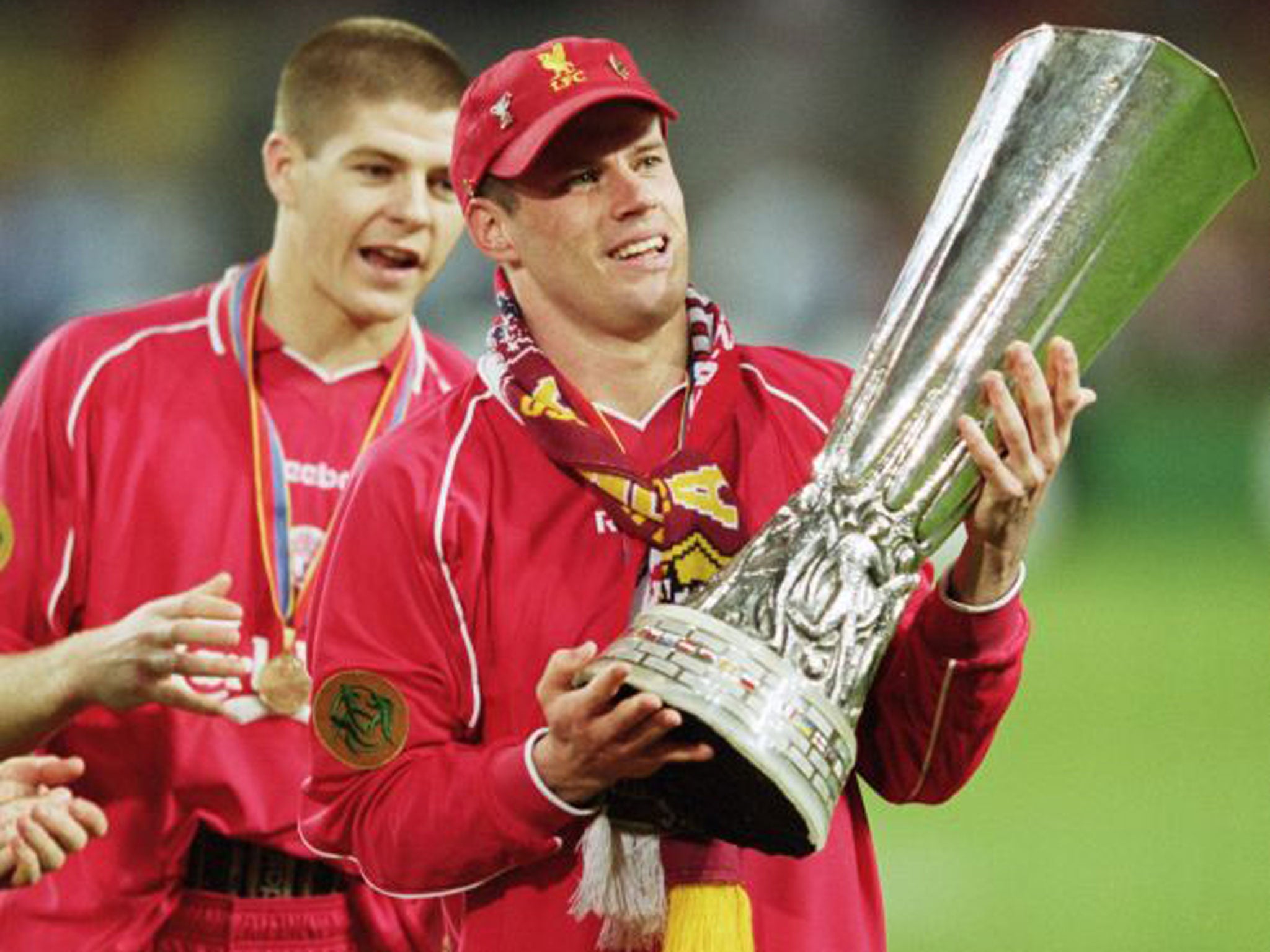Why Europa League is not the handicap that most Premier League clubs believe
The Weekend Dossier

For Alan Mullery it is up there as a career highlight with marking Pele at the World Cup; for Sven Goran Eriksson it made him “the happiest man alive”; but for English clubs today it is mainly seen as a nuisance.
Thus Thursday’s draw for the knock-out stages of the Europa League will be regarded with a degree of ambivalence. At least two of the managers of the quartet of English clubs involved will be as anxious as to the location of their next opponents as their playing strength.
There was a time when the Europa League – or, rather, its precursors the Inter-City Fairs Cup and Uefa Cup – was regarded as a major honour and English clubs set out to win it. Between 1968 and 1973, English clubs lifted six successive trophies, adding further silverware in 1976, 1981 and 1984. However, in the last 28 years there has been one triumph, Liverpool’s 2001 defeat of Alaves.
That night was, wrote Jamie Carragher later, “for many Liverpudlians the highlight of their lives at the time”. More tellingly, he also noted that while manager Gérard Houllier and the squad’s foreign players regarded the night as the best of the season, for English players the FA Cup win a few days earlier was more significant. Steven Gerrard later admitted that he, and several others, had ignored Houllier’s edict that they only have “a couple of beers” to mark the FA Cup win, Gerrard reasoning two beers was not enough to celebrate such an achievement.
That contrasting attitude remains. It is no surprise that Tottenham, whose Portuguese manager Andre Villas-Boas came to global prominence by winning the Europa League with Porto, have fielded stronger sides in the competition this season than Newcastle United and Liverpool, who have domestic managers. Similarly Juande Ramos, twice a winner with Seville, played stronger teams in the competition while managing Tottenham than his successor Harry Redknapp did.
Thus while Villas-Boas and Chelsea’s interim manager Rafael Benitez will be hoping for teams their sides can beat in the draw, Brendan Rodgers and Alan Pardew will be praying Liverpool and Newcastle are paired with clubs from easily accessible cities. This is especially so after respectively enduring difficult journeys in playing at Udinese and Bordeaux last week.
Yet an analysis of results suggests the Europa League has not hindered these clubs on balance. Liverpool, Tottenham and Newcastle combined played 22 weekend Premier League matches after a Thursday Europa League tie (including qualifying rounds).
They took 41 per cent of the available Premier League points in those matches. In the 30 matches they have played between them that did not follow Europa League ties, they took 42 per cent of points. There have been individual differences: Spurs, despite resting fewer first-team players, have done better after European ties while Newcastle have done marginally worse and Liverpool suffered a bit more, but clearly it is not an overwhelming handicap. More intriguing is that the trio have taken 17 points from 33 after playing away in Europe, but only 10 points of 33 after a home tie. The best combination is away in Europe, home in England, with clubs taking 72 per cent of possible Premier League points.
Much will doubtless depend on how teams are placed domestically when the Europa League resumes in February. In 2008, a weakened Bolton Wanderers team went out to Sporting Lisbon after Gary Megson prioritised his club’s relegation fight. The following year, Martin O’Neill sent a near reserve-strength Aston Villa to defeat at Spartak Moscow in an attempt to maintain his team’s pursuit of a Champions League place. Megson’s domestic aim succeeded, O’Neill’s did not. But no one seems that interested. Even Fulham’s memorable run to the 2010 final, defeating Juventus en route, has failed to spark enthusiasm. Nine English clubs have since competed in the Europa League; none has reached the last eight.
What, one might ask, is the point of chasing a European place then surrendering it so easily? Finance is the answer. Last season, Stoke City earned £2.3m from the Europa League, in which they went out in the last 32 after playing 12 matches. Had they won one more match in the Premier League they would have earned an extra £3m in merit money.
But what about the glory? Newcastle’s last major trophy was the Inter-City Fairs Cup in 1969, Ipswich Town’s last trophy the Uefa Cup, in 1981. For Tottenham fans of a certain vintage, few nights match the one when Tony Parks defied Anderlecht to win a penalty shoot-out in the 1984 final. Medals matter. Reading manager Brian McDermott noted the joy that veterans such as Ian Harte and Jason Roberts showed after winning the Championship last year. “It was the first medal they had ever won,” he said.
It is also a useful springboard for managers. Would Tottenham have head-hunted Ramos but for Seville’s Uefa Cup wins? Would Villas-Boas have been handed the Chelsea job without Porto’s success? Closer to home, taking Middlesbrough and Fulham to the final made the CVs of Steve McClaren and Roy Hodgson more attractive when the FA went looking for a new England manager. Might not the same apply to Pardew should he steer Newcastle to Continental glory?
One can understand Pardew looking nervously at Newcastle’s league position and sacrificing Europe, but Uefa can change such attitudes at a stroke. If winning the Europa League brought the reward of a Champions League place, the pursuit of money and glory would converge and England’s quartet would approach Thursday’s draw hoping for soft opposition, not an easy flight home.
Subscribe to Independent Premium to bookmark this article
Want to bookmark your favourite articles and stories to read or reference later? Start your Independent Premium subscription today.

Join our commenting forum
Join thought-provoking conversations, follow other Independent readers and see their replies